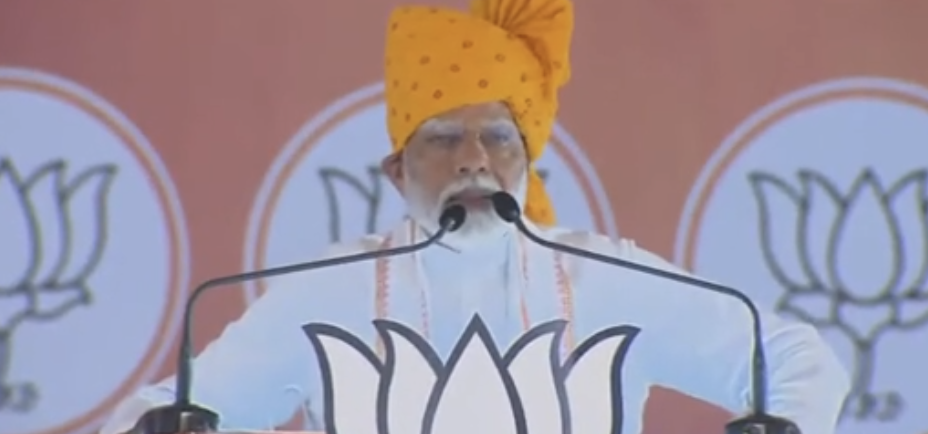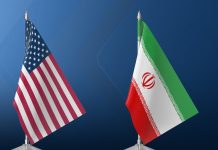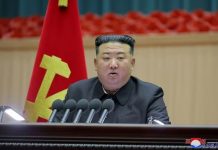NEW DELHI: India’s Narendra Modi government is facing criticism not only from opposition parties but also from its own allies for its continued support of Israel, which has been internationally accused of committing genocide, TRT World reports.
Several political leaders have signed a statement condemning what they describe as the “heinous genocide of the Palestinian people by Israel” and are urging the Indian government to work towards “peace and justice.”
The Janata Dal (United) party (JD(U)), a key ally of Modi’s ruling Bharatiya Janata Party (BJP) and a cru-cial supporter of the National Democratic Alliance (NDA) government, has recently joined opposition calls for halting arms supplies to Israel. This follows reports of over 40,000 deaths in the besieged Pal-estinian enclave due to Israeli military actions.
This development follows a visit by a delegation from the League of Parliamentarians for Al-Quds, an independent organisation that coordinates global parliamentary efforts in support of Palestinian liber-ation. The delegation met with JD(U) General Secretary KC Tyagi and at least 15 other Indian parlia-ment members to urge a shift in India’s stance on the Israeli occupation. Mohammad Makram Balawi, Secretary-General of the League, said, “(India’s) current policy towards the Israel-Palestinian conflict needs revision, and hopefully, we will be able to convince Indian officials to make the necessary changes.”
Balawi noted that Tyagi has a long history of supporting the Palestinian cause, and his advocacy in Par-liament and media is crucial for garnering public support and influencing policy changes.
Tyagi affirmed, “We want the killing of the elderly, women, and children to stop in Gaza, and we also want UN resolutions regarding Israel and Palestine to be respected.”
India is Israel’s largest defence buyer, importing around $2 billion worth of arms annually, which consti-tutes over 30 per cent of Israel’s total arms exports. This arms exchange has been mutual; reports indi-cate that India has supplied Israel with advanced drones and other weaponry. Although the Modi ad-ministration has not confirmed these reports, a joint venture between Israel’s Elbit Systems and In-dia’s Adani Group, along with collaborations on surveillance technology, is known to exist.
Additionally, tens of thousands of Indian workers are expected to fill jobs in Israel, replacing Palestini-ans who have been barred from entry since October.
This strong relationship between India and Israel is relatively new. India’s stance on the Israeli-Palestinian conflict has shifted significantly since Narendra Modi’s rise to power in 2014.
Historically, India supported the Palestinians and voted against the partition of Palestine in 1947 at the United Nations General Assembly. India also recognised the Palestinian Liberation Organization (PLO) as the representative of the Palestinian people in 1974, before establishing diplomatic ties with Israel in 1992.
Modi’s visit to Israel in 2017 marked a historic first for an Indian Prime Minister. Balawi remarked, “His-torically, India has consistently supported the Palestinians and their cause. But the dynamic changed when the BJP came to power, as there is an ideological affinity between the BJP and Likud party. The close friendship between Modi and Netanyahu has been evident, particularly in both Israeli and Indian media.”
The ideological similarities between the BJP and Likud, both rooted in religious nationalism, have led to increased public unease and the rise of extreme ideologies.
This shift has been mirrored by incidents of violence by Hindu mobs in India and illegal settlers in Israel, highlighting a troubling trend in both countries. –Agencies





